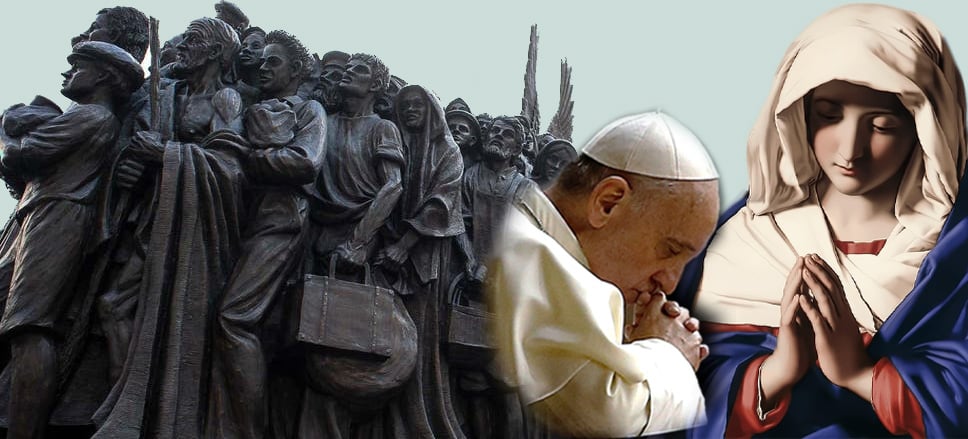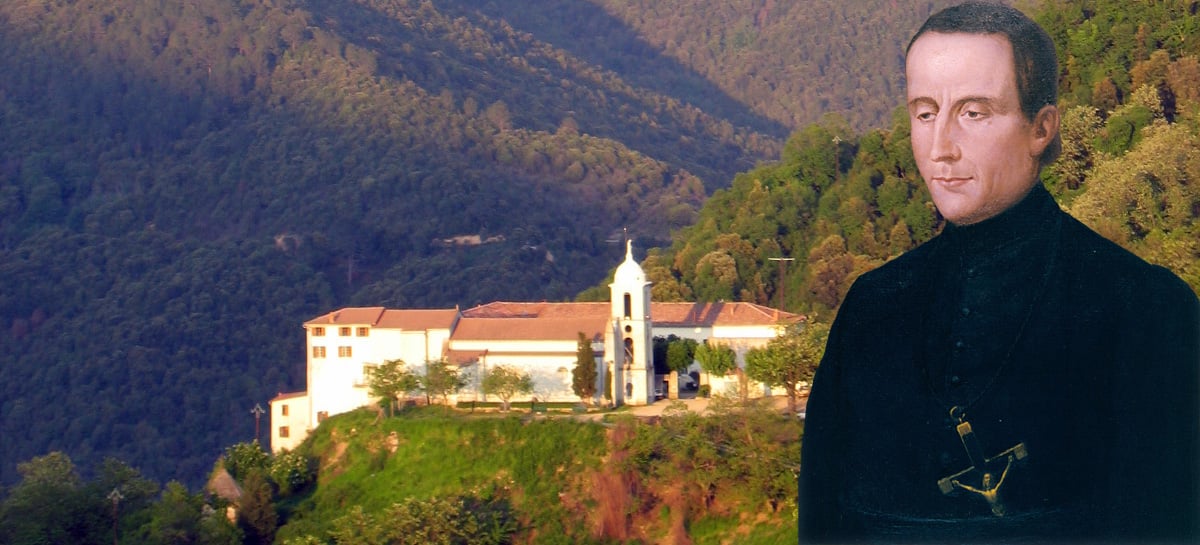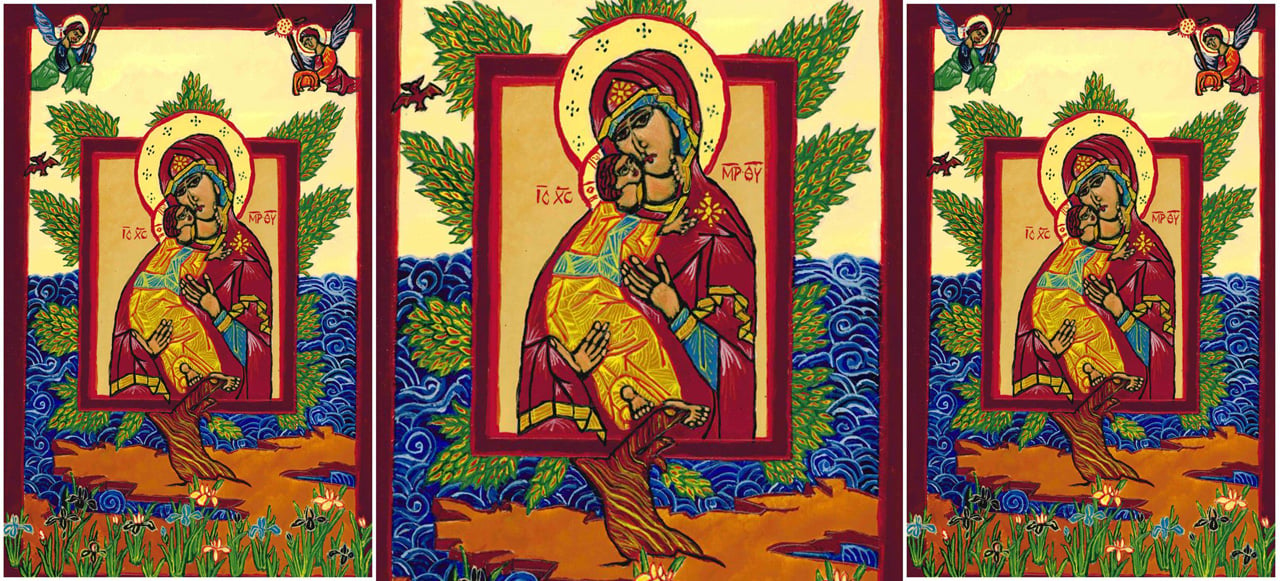L.J.C. et M.I.
Dear brother Oblates and all who live the Oblate charism,
These months of the coronavirus pandemic have caused uncertainty and anxiety as we see that it is still out of control. It seems that there is less and less talk about life returning to normal and a scary realization that what we are now living is our new normal. The social and economic consequences are crippling and strike at the poor more than anyone else. We read with alarm the spread of COVID-19 in the Amazon region, wreaking havoc on indigenous peoples.
In June in the United States, a white police officer killed a black man by kneeling on his neck for nearly eight minutes as the man lay handcuffed on the ground, triggering world-wide manifestations against racism and all forms of discrimination. Our planet’s environment, although having shown some improvement in the quality of air due to the lockdown, has shown continued deterioration and contamination, more rapidly approaching a tipping point beyond which there will be no return. The realities of poverty, famine, war, religious persecution, and climate change are generating millions of people on the move, migrating in search of some quality of life. Other forms of violence, such as that caused by drug cartels and human trafficking, add to the suffering in our world. Governments are embroiled in polarizing conflicts and extravagant corruption, ignoring the plight of the poor.
This world of ours in all its woundedness is our concern, our place of mission. The image Pope Francis uses so often, that of a field hospital in a war, expresses well the Church’s mission and our own in this state of emergency. It was surprising then, that on June 20, it was reported that Pope Francis added three new invocations to the Litany of Loreto! Someone remarked, “Doesn’t he have more important things to do?” I am sure he has, but as a man of faith and devoted to the Mother of Jesus, he was sending us a needed message in the face of the present crises which the world is living. Each invocation speaks to the world context and to the mission before us: Mary as Mother of Mercy, Mother of Hope, and Solace of Migrants.
The Church has invoked Mary as Mother of Mercy for centuries. She is the Mother of Jesus, who is mercy incarnate. This title celebrates the God she sings of in her Magnificat: the Almighty remembers the promise of mercy he made to Abraham and Sarah, and comes to lift up the lowly and cast down the powerful and the rich. This invocation also reminds us that God is faithful, mercy is in our midst and journeys with us in the darkness of these days. Like a loving Mother, God consoles us and holds us close to reassure us amid the fears and uncertainties we face. Praying to our Mother of Mercy brings us strength, courage and energy, so that we become ministers of mercy in the field hospital. We have seen and heard many outstanding witnesses of mercy in these months of the pandemic.
Mother of Hope, is another title the Church has used for centuries. Mary’s being is centered on her Son, Jesus, who is our sure hope. Even in the face of the pandemic, the violence, and the evil all around us, the Mother of Hope reminds us of the blessed assurance of things unseen, and enables us to see the invisible, the Reign of God that is among us. Our vision, enabled by hope, gives us eyes capable of recognizing small gestures of love, beauty and fraternity in our broken world.
Our Mother of Hope helps us also to hear that new song, a victorious song, that only those who belong to the Lamb are able to hear. It is a song about the mystery of the Reign of God among us, truly present in the world. Hope is the certainty of things not seen and, even if evil abounds and appears to be gaining ground, hope is the confidence that God’s grace is more abundant, stronger and more lasting than evil. This invocation, Mother of Hope, not only calls us to be filled with hope, but also commits us to go to work in the field hospital. It leads us to cooperate in nothing less than the transformation of our society through gestures of love and grace, artisans of peace, promoters of social justice, and earnestly caring for our common home.
Finally, very aware of the reality of world-wide migration, the Holy Father has inserted Solace of Migrants in the Litany. Yes, Jesus, Mary, and Joseph knew what it meant to flee their country and become refugees. The Holy Family provides comfort to migrants and solidarity with the millions of uprooted people on our planet. The invocation, “Solace of Migrants” is not just a prayer to comfort migrants. It is also a commitment to go to the field hospital, becoming a source of concrete support, aid and welcome to migrants.
While visiting an Oblate parish in a locale that has many migrants, a parishioner asked, in a tense tone of voice “What are we supposed to do with all these foreigners coming to our country?” I replied that is a complicated social, political, and economic problem that requires a long-term solution. But that in the end, Jesus told us what to do: “I was a stranger and you welcomed me.” I believe that as we pray this title of Mary, Solace of Migrants we are saying that we will act with justice and charity. We have to address the causes, a long-term challenge; and we have to welcome, offer assistance, and show solidarity to those who come among us.
As we contemplate the many invocations of the Litany of Loreto, we are drawn to be doers of the Word, engaged in the mission of Jesus, not just hearers. Pope Francis is profoundly in touch with the brokenness of the world. His additions to the Litany of Loreto call us to renew our life of prayer and our devotion to the Mother of Jesus at this critical period of history. These titles likewise convoke us into the field hospital of suffering humanity and of wounded creation, missionaries of hope, of mercy and of solace.
We recall that the Assumption of Mary is an Oblate feast, for, on this day in 1822, Saint Eugene received a very special grace through Our Lady’s intercession. It assured him of the future of the Congregation and the good fruit that it would produce. We continue to be blessed by the smile of Mary Immaculate at present and into the future! A joyful feast day to all of you!
In Jesus Christ and Mary Immaculate,
Fr. Louis Lougen, OMI
Superior General
August 15, 2020



